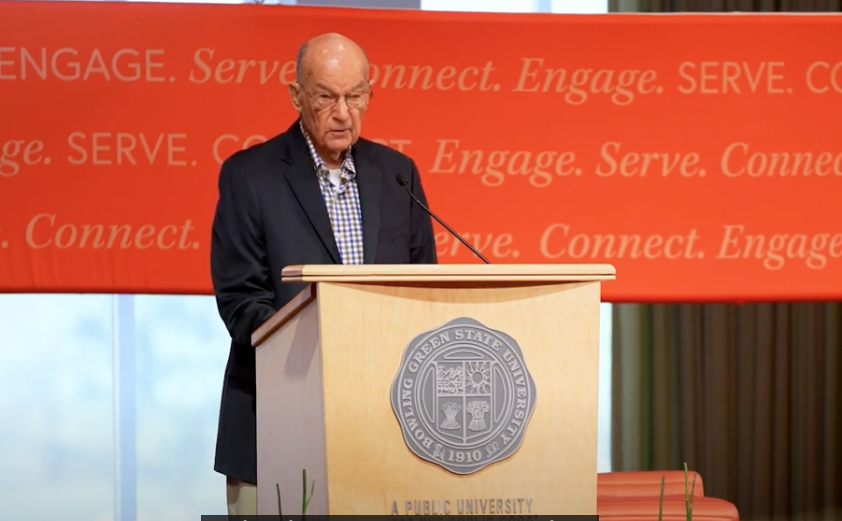The University administration and faculty union are preparing for negotiations despite Gov. John Kasich’s recent signing of Senate Bill 5.
“We’re continuing to prepare for bargaining, undaunted,” said Karen Craigo, Faculty Association communications director. “We were a little thrown off trying to fight the legislation — unsuccessfully, as it proved — and now our eyes are back on the prize.”
Despite disagreements concerning Senate Bill 5, representatives from both the FA and administration spoke similarly concerning collective bargaining’s future at the University.
“Our obligation is to comply with the law as it presently applies, and until Senate Bill 5 goes into effect, we’re both governed by the current state of the law, which obligates us to bargain with the faculty,” said Sean FitzGerald, the University’s general counsel. “We’re ready to bargain when they are.”
The FA and administration are still preparing their first bargaining contract, which can be a lengthy process, he said.
“This is our first contract, which generally takes longer, because we’re starting with a clean slate,” said Pat Pauken, vice provost for governance and faculty relations. “It’s more important for the faculty to get it right than get it fast.”
Gov. John Kasich signed Senate Bill 5 on March 31 and it is set to become law June 30.
The bill limits collective bargaining and striking rights for all public sector employees, affecting more than 350,000 people. It also bans binding arbitration — when an impartial third party helps resolve contract disputes.
Proponents of Senate Bill 5 have praised it as a budget-balancing measure that will save the state more than $1 billion.
The bill also aligns Ohio law with federal standards set by National Labor Relations Board v. Yeshiva University, a 1980 Supreme Court case ruling that faculty at a private New York institution are managerial employees, FitzGerald said.
“Senate Bill 5, as it relates to faculty, changes Ohio law in small but significant ways,” he said. “It gives appropriate recognition to the very important role faculty have in making fundamental decisions of great input to the University — what gets taught and researched, how and by whom.”
Opponents of the bill, however, call it a direct attack on unions.
Senate Bill 5’s definition of faculty as “management” ineligible for collective bargaining is wrong, said FA President David Jackson.
The amended language was “slipped in last minute” by the Inter-University Council of Ohio, an association of representatives from the state’s 14 public universities, including University President Carol Cartwright, Jackson said.
“The only reason that language was sneaked into Senate Bill 5 was because they couldn’t thwart collective bargaining in a fair and free election,” he said. “We’re not management. The administration can assert it, but it doesn’t make it true. We’re purely advisers, and that can be and is frequently ignored.”
Along with others across the state, Jackson is gathering more than 200,000 signatures in hopes of a referendum on the November ballot, allowing Ohioans to vote to decide if the bill becomes law.
“We’re 100 percent certain we’ll collect enough signatures and overturn it,” he said. “Until then, the plan is to continue moving forward. We’re putting together our negotiating team and we will begin meeting with the administration really soon.”
Breakdown of Senate Bill 5
OHIO SENATE BILL 5:
Affects more than 350,000 public workersRemoves their right to strikeLimits and reinstates their collective bargaining rightsRevises their process for contract disputesSaves the state more than $1 billionSource: Ohio Municipal League website
OHIO REFERENDUM PROCESS:
A referendum allows Ohioans to vote in November to decide if the bill becomes law. 231,149 signatures are needed to place a referendum on the ballot.Signatures must be collected from 44 of Ohio’s 88 counties. Senate Bill 5 will become law June 30 unless enough signatures are collected. Source: Ohio Secretary of State website






















